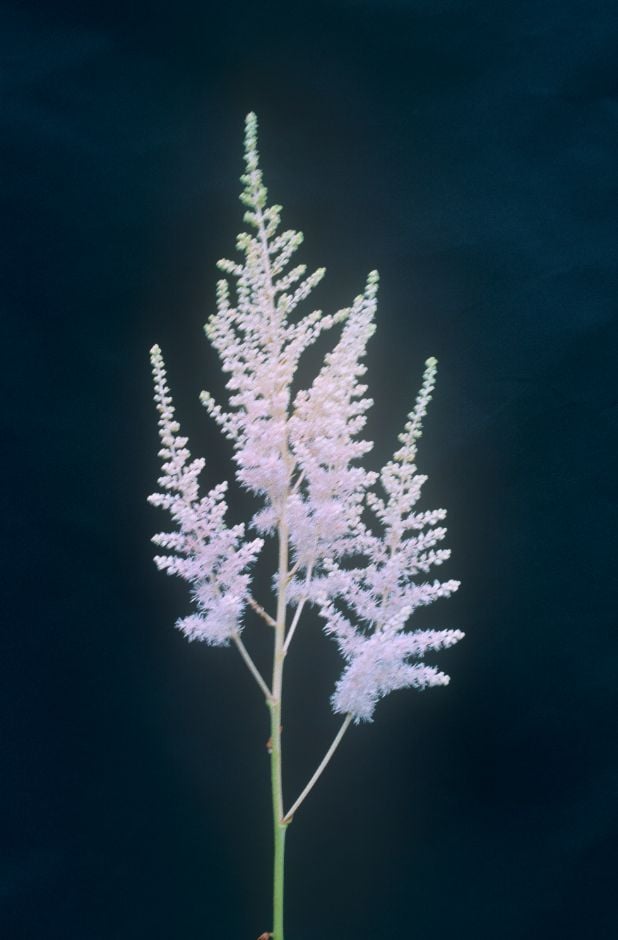Astilbe chinensis 'Milk and Honey'PBR
Chinese astilbe 'Milk and Honey'
A clump-forming perennial to 70cm with rough, matt, yellowish-green, divided foliage. Very long plumes of fluffy, silvery-white flowers, with a hint of pale pink, are produced on strong stems in mid-summer

Buy this plant
Size
Ultimate height
0.5–1 metresTime to ultimate height
2–5 yearsUltimate spread
0.1–0.5 metresGrowing conditions
Moisture
Moist but well–drained, Poorly–drainedpH
Acid, Alkaline, NeutralColour & scent
| Stem | Flower | Foliage | Fruit | |
| Spring | Green | |||
|---|---|---|---|---|
| Summer | White | Green | ||
| Autumn | Green | |||
| Winter |
Position
- Partial shade
Aspect
West–facing or East–facing or North–facing
Exposure
Exposed or Sheltered Hardiness
H7Botanical details
- Family
- Saxifragaceae
- Native to GB / Ireland
- No
- Foliage
- Deciduous
- Habit
- Clump forming
- Genus
Astilbe are rhizomatous herbaceous perennials with attractive, usually ternately divided leaves and erect plume-like panicles of tiny white, pink or purple flowers in summer. The old, brown flower-heads remain attractive in autumn
- Name status
Accepted
How to grow
Cultivation
Grow in moist but well-drained or boggy soil in dappled shade, or in indirect sun where the soil remains moisture-retentive in summer. Drought intolerant, may be damaged in hot sun. Good for waterside planting. See Astilbe cultivation
Propagation
Propagate by division in late winter or early spring, pot divisions under glass and plant out in late spring
Suggested planting locations and garden types
- Cottage and informal garden
- Cut flowers
- Flower borders and beds
Pruning
Can cut back after flowering, or delay until spring as faded flower spikes can remain attractive in autumn and winter
Pests
May be susceptible to vine weevil
Diseases
May be susceptible to Powdery mildews and leaf scorch in hot sun
Love gardening
Sign up to receive regular gardening tips, inspiration, offers and more
View our Privacy Policy
Get involved
The Royal Horticultural Society is the UK’s leading gardening charity. We aim to enrich everyone’s life through plants, and make the UK a greener and more beautiful place.